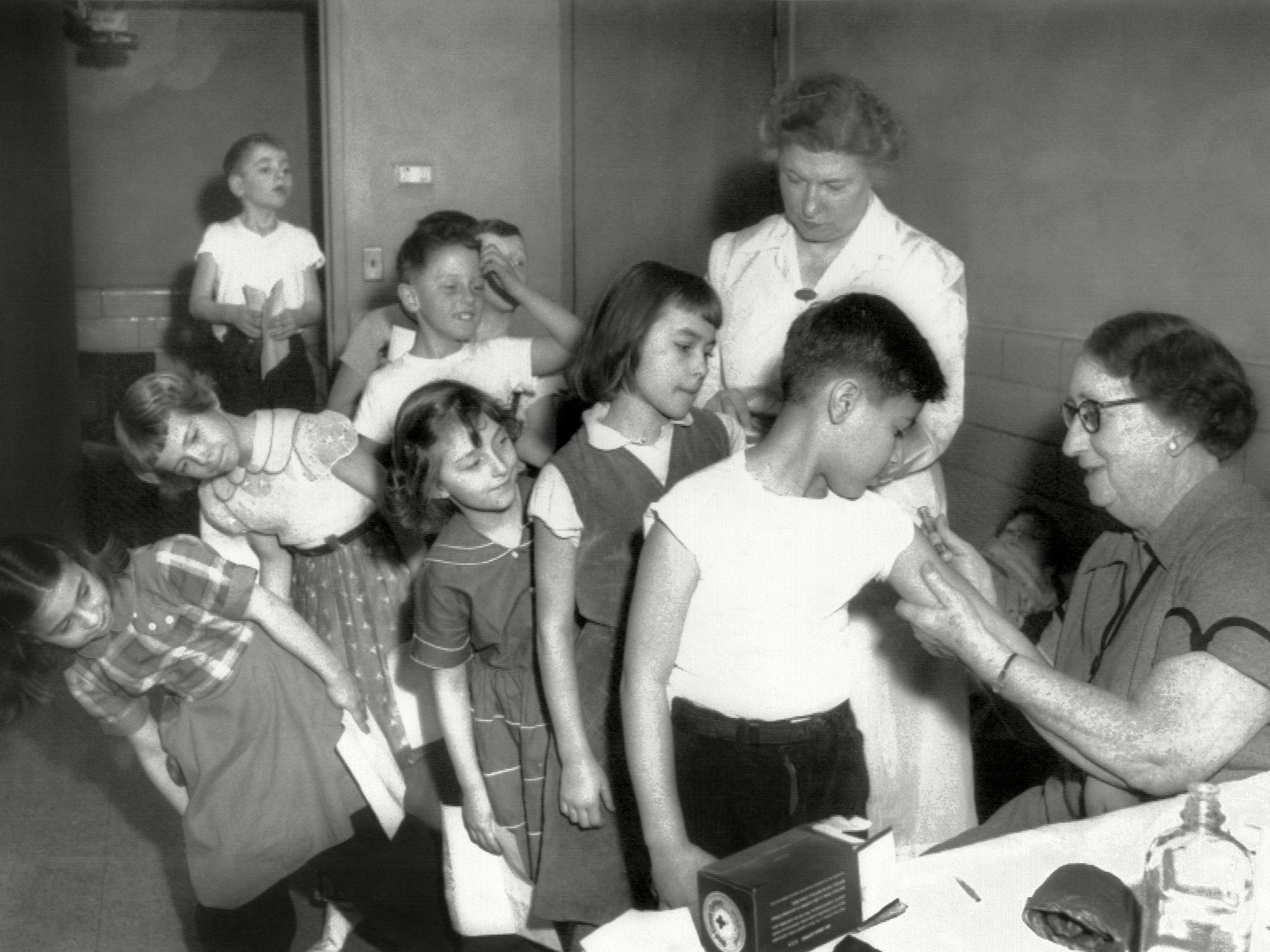Covid disrupted routine vaccinations for 23 million children worldwide in 2020
‘We cannot allow a legacy of Covid-19 to be the resurgence of measles, polio and other killers’

As many as 23 million children worldwide may have missed out on routine childhood vaccines due to disruptions caused by the Covid-19 pandemic, report suggests.
Data from the World Health Organisation (WHO) and United Nations Children’s Emergency Fund (Unicef) also indicates up to 17 million of those children may have not received a single jab of any kind in 2020.
“Even as countries clamour to get their hands on Covid-19 vaccines, we have gone backwards on other vaccinations, leaving children at risk from devastating but preventable diseases like measles, polio or meningitis,” Dr Tedros Adhanom Ghebreyesus, WHO director-general, said.
Dr Ghebreyesus said disease outbreaks would be catastrophic for communities and health systems already struggling with coronavirus.
South-east Asian regions - such as India, Pakistan, Indonesia, the Philippines and Mexico - were found to be the most affected and saw the greatest increase in children not receiving a first dose of diphtheria-tetanus-pertussis combined vaccine (DTP-1).
Globally, when compared with 2019, 3.5 million more children were found to miss their first dose of the DTP-1 jab, while three million more children skipped their first measles dose.
Before the pandemic, childhood vaccination rates against diphtheria, tetanus, pertussis, measles and polio had been at around 86 per cent - a rate well below the 95 per cent recommended by WHO to protect against measles.
Dr Seth Berkley, CEO of Gavi, the Vaccine Alliance, said the numbers are alarming.
“This is a wake-up call - we cannot allow a legacy of Covid-19 to be the resurgence of measles, polio and other killers,” he said.
“We all need to work together to help countries both defeat Covid-19, by ensuring global, equitable access to vaccines, and get routine immunisation programmes back on track.”
Data from the UN bodies’ report coincides with a new modelling study published in The Lancet, which also highlights childhood vaccination declined globally in 2020 due to covid-19 disruptions.
The study, by the Washington-based Institute for Health Metrics and Evaluation (IHME), is based on country-reported administrative data for DTP and measles vaccines, supplemented by reports on electronic medical records and human movement data captured through anonymised tracking of mobile phones.
The modelling study suggests missed doses of DTP3 may have risen from an expected 600,000 to an estimated 1.2 million in high income countries, while missed doses of measles increased from 700,000 to 1.5 million.
Lead author Kate Causey, a researcher at IHME, said,“Even before the pandemic, millions of children worldwide were not receiving doses of routine vaccines.”
“Those numbers have declined dangerously since the pandemic, with coverage in 2020 falling to levels not seen for over a decade.”
“Although vaccination rates are rebounding, simply returning to pre-pandemic levels of vaccine coverage will still leave millions of children at risk for vaccine-preventable diseases that pose a serious threat to their health and survival.”
Includes reporting by PA
Join our commenting forum
Join thought-provoking conversations, follow other Independent readers and see their replies
Comments